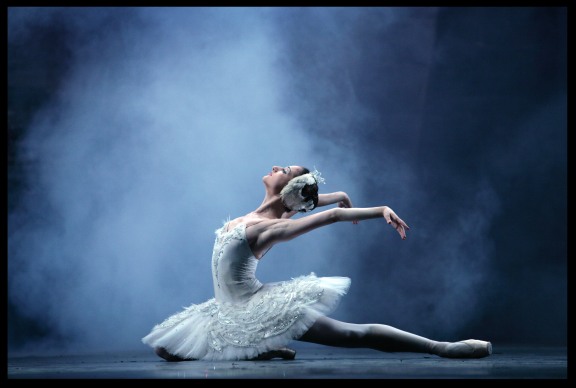
Seldom in the history of classical music has a name been linked so thoroughly in people’s minds with a particular style of music than the way Pyotr Ilyich Tchaikovsky’s name has been linked with ballet. Ask any layperson to name a ballet and the odds are fairly good that their answer will be one of Tchaikovsky’s most famous compositions – ‘Swan Lake’ (this link is to ‘The Dance of the Little Swans’, which is amazing) or ‘The Nutcracker’.
Born in 1840 to a civil servant, Ilya Petrovich Tchaikovsky, and his second wife, Alexandra Andreyevna, Pyotr’s original musical training was less a concession to his obvious talent than a concession to necessity: long periods of time spent in small towns in the far reaches of Russia meant that any civil service family prioritised musical education as a means of self-defence from boredom. Pyotr was only ten when he was sent eight hundred miles away from home to attend the Imperial School of Jurisprudence in St. Petersburg in preparation for a career in the civil service.
Left bereft by the death of his mother in 1854, and expected simply to carry on with his studies, Tchaikovsky suffered in silence, finding distraction in the deep bonds of school friendship and the various musical entertainments offered by the city.

In 1859 he entered the Russian civil service as a titular counsellor: an entry-level position but one which still offered greater social standing and better prospects of advancement than the career of a musician. For three years he remained in the Russian civil service, but then in 1862 the St Petersburg Conservatory opened, and Tchaikovsky enrolled in the initial intake. The Conservatory took a unique approach, aiming to blend the best in European influences with the best of Russia’s own musical heritage. This has two key outcomes: on the one hand, it taught Tchaikovsky how to compose music which would be acceptable to European audiences, and on the other it ensured that he would never be a part of the contemporaneous Russian Nationalist musical movement led by the ‘Mighty Five’ of Mily Balakirev, Cesar Cui, Modest Mussorgsky, Nikolai Rimsky-Korsakov and Alexander Borodin.
Although today Tchaikovsky’s work is celebrated throughout much of the classical music world, he received only a lukewarm reception amongst Russian and European audiences at the time. He married late, at the age of 37, to Antonina Miliukova, a former student. The marriage failed almost immediately, a fact which most commentators attribute primarily to Tchaikovsky’s homosexuality. The social, religious, and moral climate at the time mean that Tchaikovsky almost certainly experienced a degree of psychological suffering due to his sexual orientation, but how much is hard to judge, in part because some records were deliberately destroyed. It may have been a source of constant torment, or it may have been of negligible importance. Regardless, it is easy to understand both why he married, and why the marriage failed.
Tchaikovsky spent a number of years following the end of his marriage travelling extensively through Europe and Russia, and it is during this period that he composed, amongst many other works, his ‘1812 Overture’, aka music scored for orchestra plus canons (the link is for the finale).
In 1884 Tsar Alexander III conferred upon him the Order of Saint Vladimir (fourth class), which elevated him to the nobility, and he served as director of the Moscow branch of the Russian Musical Society in the 1889-90 season, inviting international celebrities such as Brahms and Dvorak to conduct for him.

But it was not to last. On 28th October 1893 he died, reportedly of cholera (the same disease which killed his mother), although speculation has always been rife that it was in fact suicide. While he left behind a vast body of work including concertos, symphonies, and operas, he remains best-known today for the 1812 Overture (1880), and the ballets ‘Swan Lake’ (1875-76), ‘Sleeping Beauty’ (1890), and ‘The Nutcracker’ (1892).
Are you familiar with Tchaikovsky and his work? What vital information/pieces have I omitted?

One of the driving forces of Tchaikovsky’s creativity was his obsession with fate. Quite a few scholars link this to his despair over his own sexual orientation, unacceptable to the bourgeois society. He suffered enormously and at some point tried to get “cured” to escape his fate. At the same time he was a worthy heir to Romanticism, at least by style if not by name. One of my top five picks in that category would be the Serenade in C major, Op. 48.
LikeLike
His violin concerto is my favourite piece of classical music. So beautiful. Thanks for this, it was a very informative piece.
LikeLike